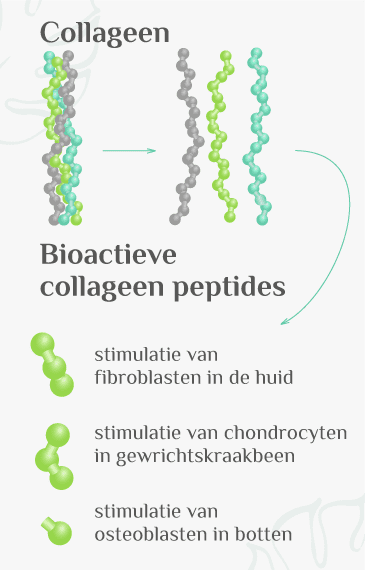Shopping cart
- No products in the cart.
Subtotal:
€ 0,00
Free shipping from 80 Euro
We ship the same day before 4 p.m. *
Free returns **

Despite promising results, collagen can be found on the market in different qualities. Some collagens have a pungent odor and taste and are poorly soluble. To overcome such deficiencies, manufacturers often add flavors and flavor additives. Another important criterion is the digestibility of collagen: the better the absorbability, the lower the dosage to be used.
Attention should be paid to the absorbability and dosage of supplements.
There are 13 different types of collagen. Bovine collagen contains several types, including Type I, which we find in the skin, but also Type II and III, which we find in joints, cartilage, ligaments and tendons, as well as muscles. Because of this, the action of bovine collagen is much broader than fish collagen, which contains only Type I. Beef collagen also contains Type III, which is found in joints and connective tissue.
In addition, Collavita has chosen the world's finest collagen where we work with the best molecular weights according to application. But most important of all are the amino acids present in the collagen. After all, these are responsible for making collagen and procollagen in our body and targeting specific cells. Across the board, the amino acids in Collavita products are the highest on the market. 18 crucial amino acids are found in our collagen, some of which are not found in other foods and proteins.


Collavita uses only high-quality European raw materials for its products. Unlike other collagen brands that use the same collagen for everything, our collagen peptides have a functional focus.
Collavita products are highly absorbable, so the daily dosage is between 2.5 and 5 grams, which is several times lower than other manufacturers' dosages.
Collavita products are government registered. Collavita's collagen peptides comply with FDA, HACCP, ISO9001: 2015 and FSSC22000: 2010. Classified as GRAS (Generally Regarded As Safe). Complies with Regulation (EC) No. 852/2004 on food hygiene and Regulation (EC) No. 853/2004 laying down specific requirements for food of animal origin.
